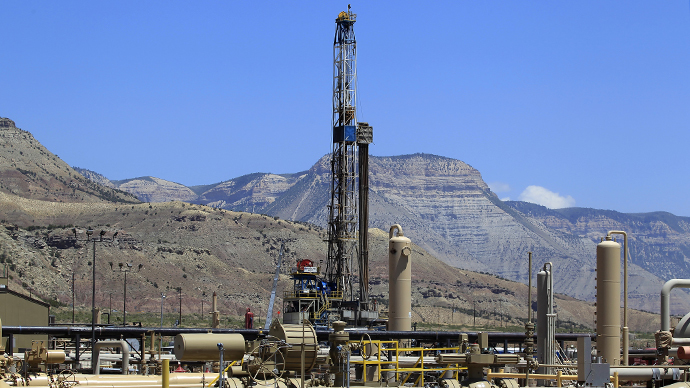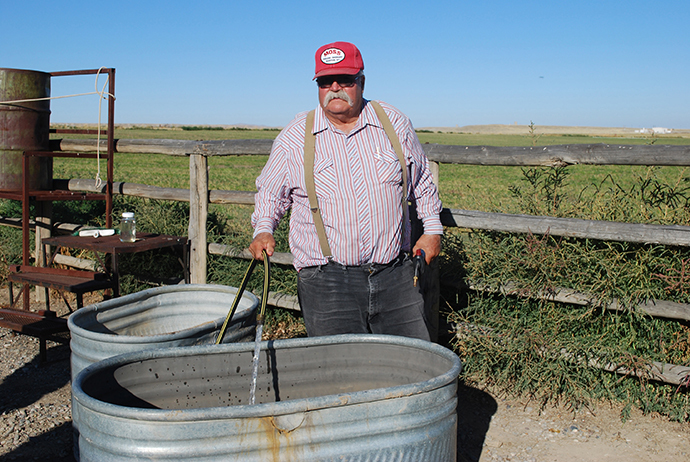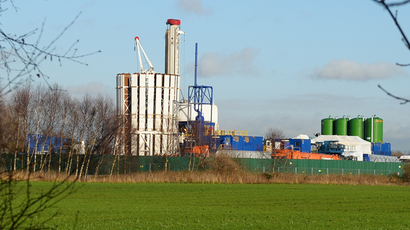Living near fracking sites increases infant birth defects – study

Although fracking already attracts controversy as an allegedly bio-hazardous industry, a new study takes it up a notch by showing that the practice can badly impact the health of unborn children.
Babies still in their mothers’ wombs living within a 10-mile range of fracking wells are in much greater danger of congenital heart defects (CHD) and neural tube defects (NTD). This was surmised in a recent study correlating birth data with geographical locations of gas wells and congenital conditions.
Hydraulic fracking is a process of fracturing rock with the use of pressurized liquid consisting of water, sand and chemicals. It drills deep underground, forming fractures that force gas and other chemicals to come out of rock and into the hole. Proponents believe it is a much more economical way of getting to the gas and oil. Environmental groups maintain the process can cause small earthquakes and badly contaminate water, leading to a myriad of problems.
The study, called “Birth Outcomes and Maternal Residential Proximity to Natural Gas Development in Rural Colorado” comes from the National Institute of Environmental Health Sciences (NIH) and Environmental Health Perspectives (EHP), and explores three variations of birth defects, fetal growth and pre-term birth.
Some of the resulting conditions include endocardial cushion defect, pulmonary valve atresia and stenosis. It also turns out that if a pregnant mother lives within a 10-mile radius, the chances of the baby inheriting CHDs go up by 30 percent.
The Colorado study elicited data from sampling nearly 125,000 births in the period between 1996 and 2009.
“Fracking causes babies to be deformed – the more we learn about fracking, the worse it gets,” Gary Wockner, the director of the Clean Water Action program in Colorado, told environmental business portal Ecowatch.com while commenting on the research.
According to Wockner, this is the first serious study in the Colorado area to actually tackle the effects of fracking on people’s health.
“If you live near a fracking site and you want to have a healthy baby, you should consider moving,” he said.
There are a reported 47,000 gas wells in the state of Colorado. A substantial 26 percent of those are located within a 300 – sometimes as little as 30 – meter radius of any type of living structure.

However, numerous studies have been conducted on the chemicals released through the drilling process. According to the study, natural gas development (NGD) has led to emissions of harmful compounds such as nitrogen dioxide, sulfur dioxide and others substances. They show up everywhere, from wells to any type of receptacle containing water to pipelines and even home taps – basically, any place associated with the process of drilling.
A particular recent example, although not in Colorado, included a North Dakota man literally setting the water coming out of his tap on fire.
Even the less harmful pollutants, according to the study, have the capacity to increase exposure of the unborn fetus to more harmful mutagens.
And as the study concludes, “taken together, our results and current trends in NGD underscore the importance of conducting more comprehensive and rigorous research on the potential health effects of NGD.”
In other studies on fracking effects, a recent report from Texas found methane in drinking water after the Environmental Protection Agency decided not to test it, following reports that the company doing the drilling had supposedly already done that and gotten negative results.
The beginning of January, however, saw the appearance of new testing rules requiring the testing of water before and after drilling to determine its precise effects on the chemical composition of underground water.
Environmental lobbyists are currently working on recommendations and improvements for these rules, as they claim they are still too weak.
It remains to be seen how fracking in Colorado will be curtailed when the practice of gas drilling provides the state with nearly 44,000 jobs and brings in hundreds of millions of dollars. However, according to The Gazette, drilling keeps moving closer and closer to populated areas than before.















